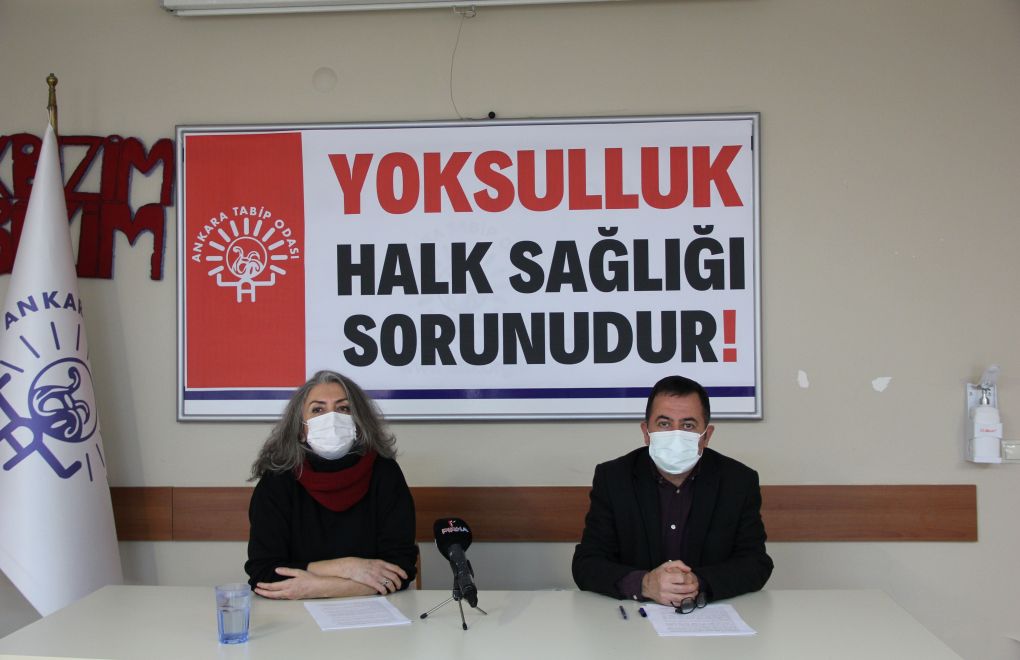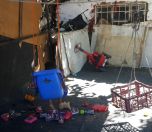Click to read the article in Turkish
The Executive Board and Public Health Commission of the Ankara Medical Chamber (ATO) held a press conference today (February 28) and raised publicity and concerns about poverty as a public health problem amid deepening economic crisis and increasing prices in Turkey.
Set out to draw attention to poverty as a factor driving the health and healthcare system away from wellness and its effects on health, the press conference was held by ATO Secretary General Dr. Muharrem Baytemür and Dr. Ebru Basa from the ATO Public Health Commission.
Taking the floor during the conference, Dr. Muharrem Baytemür underlined that people's right to healthcare should not be considered solely within the framework of healthcare services. He recommended a holistic approach to public health within the wider context of fundamental rights such as the right to food, housing, heating and social welfare.
Reading out the press statement, Dr. Ebru Basa from the Healthcare Commission also referred to the World Health Organization (WHO), which defines wellness as "a state of complete physical, mental, and social well-being, and not merely the absence of disease or infirmity."
Against this background, she underlined that health is not only a personal phenomenon, but has a political, social and socioeconomic dimension: "In a society which cannot have an adequate and balanced diet, which cannot access healthy housing, which cannot get warm sufficiently and which is condemned to darkness, poverty is a public health problem."
Inequality
Dr. Basa stressed that in order for the public to remain healthy, there is a need for a social order where social needs are met publicly, equally and free of charge. She noted that increasing injustice in income distribution and equality underpin starvation and poverty.
Citing the "Starvation and Poverty Line Survey" carried out by the Confederation of Turkish Trade Unions (Türk-İş), Dr. Basa raised concerns that the purchasing power keeps on falling: "While the poverty line of a family of four is 15,139 lira, the starvation line has topped the 2022 minimum wage with 4.552 lira. Minimum wage is not even enough to get full."
Nutritional problem
Dr. Basa also reminded the public of the long queues in front of cheap bread buffets and noted that citizens now tend to eat more carbohydrates. She stressed that due to the 9-fold increase in food inflation in Turkey, it has become harder to access healthy and nutritious food.
Noting that one out of every three people is obese, Dr. Ebru Basa said that the reason behind this high rate of obese people is not the abundance of food, but the expensiveness of quality and healthy food. She also indicated that in Turkey, nearly 7.4 million children live in poverty.
Housing problem
Touching upon the increasing housing prices and rents, Basa said, "High rents and housing problems negatively affect the mental and physical health of students who suspend their education despite qualifying for university, employees who have to spend half their salaries for rent and citizens who have to live in houses without windows because they are cheap."
Energy problem
Noting that energy is vital for people, Dr. Ebru Basa stated:
"In the energy sector from which we receive low quality and expensive services, 80 percent of production is done by the private sector.
"The role of policies of privatization cannot be denied in discussing the failure to eliminate the days-long power cut in Isparta in the recent period or preventing the death of baby Yunus Emre, who could not use the ventilator as the electricity was cut in Diyarbakır." (AÖ/SD)






